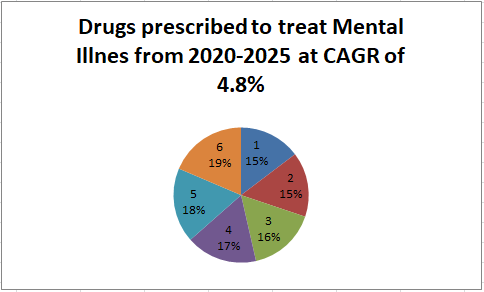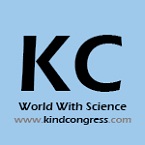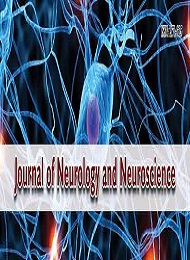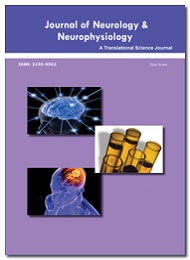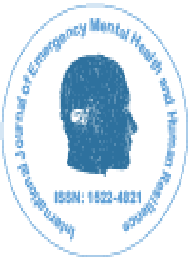Theme: Scientific Quest to Enhance the Fascinating and Mystified Neurology & Mental Health
WORLD MENTAL HEALTH 2023
The 34th International Conference on Public Mental Health and Neurosciences invites you to an engaging virtual mode of participation on Neurology and Mental Health during September 26, 2023. The theme of the conference is "Scientific quest to enhance the Fascinating and Mystified Neurology & Mental Health". To create a world-class neuroscience meeting, it brings together a significant and diverse group of neuro specialists, neurosurgeons, and innovators from academia and business across the globe.
World Mental Health 2023 will provide an excellent forum for discussing and developing original ideas regarding the most current advancements and prospective viewpoints in the fields of neurology, mental health and neurophysiology for the treatment of various neurological issues. It shows enthusiasm in your professional development to attend the World Mental Health 2023 conference. It is the best way to demonstrate your excitement for neurology research, as well as to hone your skills and broaden your perspective.
Who Attends?
- Psychiatrists
- Psychologists
- Health care professionals
- Neuropsychiatrist
- Mental health Nurses
- Neuroscientists
- Neurobiologists
- Neurologists
- Neuropathologists
- Neuropharmacologists
- Neurochemists
- Neurophysiologists
- Neuropsychologists
- Psychobiologists
- Neuro Drug Manufactures
- All Academic Professionals
Why World Mental Health 2023?
- Publication of your abstract in our proceeding journals.
- Participation Certificate.
- Lower prices affordable.
- Study the experts.
- Global dissemination of your research.
- Build new relationships.
Abstract Submission Guidelines:
Ø Abstract length must not exceed 300 words.
Ø The title should be in sentence case.
Ø Mention the full name of the author and co-authors (if any) along with affiliation.
Ø It should contain short biography of the author (limited to 100 words) along with the photograph.
Ø All the abstracts will be reviewed by the scientific committee members and you will get an email within 24-48 hours after submission of your abstract.
Ø All the accepted abstracts will be published in the conference proceedings in the respective Journal.
Abstract Submission URL: https://mental-health.neurologyconference.com/abstract-submission.php
Speakers from all over the world can submit their abstracts, research papers, case studies, and posters by choosing a topic from the "Call for Abstract" or your area of research interest. For attendees, Doctors, presenters, physicians, students, academicians, and groups, "World Mental Health 2023" offers Special registration for Webinar. Anyone can register for this conference using the choices available on the registration page.
Registration URL: https://mental-health.neurologyconference.com/registration.php
Track 1: Neuroscience & Neurons
The study of the sensory system is done logically in neuroscience (also known as neurobiology). It is a multidisciplinary field of study that deals with the physiology of neurons and neural circuits, natural chemistry, subatomic science, and living systems. Additionally, it draws from a variety of disciplines, with pharmacology, brain science, and prescribing being the most prominent examples. A neuron is a type of nerve cell that forms a significant portion of the tactile framework. In some ways, neurons resemble different body cells in different ways, however there is one important distinction between neurons and different cells. Information is specifically transmitted throughout the body through neurons.
Track 2: Mental Illness & Health care
A wide range of medical conditions are included under mental illness. Many people believe that dysfunctional conduct is an illness associated with gravely upsetting behavioural impacts like brutality, turmoil, and inappropriate sexual behaviour. Such unpleasant influences are frequently linked to severe mental illness. However, the majority of people who experience psychological instability act and appear to be no different from other people. These common psychological problems include depression, anxiety, sexual problems, and obsession. Our understanding of the origins and treatments of psychological illnesses has greatly improved. Most of these medications can be administered successfully.
Track 3: Neuro Therapeutics
The risk from neurological illnesses is growing. The sensory system is afflicted by more than 600 diseases. Accordingly, novel symptomatic and restorative approaches for the neurological problem are mostly needed. This session covers the fundamental procedures that are used to diagnose and treat neuronal issues, such as neuropharmacology examinations, novel drugs for neurological disorders, stimulation tactics, cellular and biochemical techniques, and novel indicating approaches. A unique venue for bringing together internationally renowned scholars in the fields of neurology and neurosurgery is the Neurology Conferences. Numerous panels, workshops, and paper presentations by renowned neurologists and neurosurgeons from across the nation are just a few of the intriguing academic activities that will be included during the conference.
Track 4: Nursing and Neuro-Critical Care
Specialists are trained to diagnose patients' problems, whereas neurology nurses are specially trained to help these doctors treat patients with neurological issues. Neurology nurturing controls both immediate and post-agent thought. numerous circumstances such Parkinson's disease, brain tumours, encephalitis, scattered different sclerosis, and meningitis, as well as people who have been injured, like stroke victims and people with spinal or brain injuries. New information on all aspects of intensive neurological care is circled by Neurocritical Care. It is directed for neurosurgeons, neurologists, emergency room physicians, anesthesiologists, The book Neurocritical Care provides an overview of recent discoveries in advanced brain neurology, neuro-anesthesia, and neurosurgery as well as learning about new therapeutic avenues and technological advancements.
Track 5: Neuropharmacology
The study of medications that affect how the cells in the nervous system and in the neural components affect behaviour is known as neuropharmacology. In sub-atomic neuropharmacology, neurons and their neurochemical interactions are studied with the goal of developing new drugs that have a positive impact on the sensory system. This session also combines new drug advancements in the area of neuro-immunological disorders, neuromodulation, and the change in mental illnesses. A unique venue for bringing together internationally renowned scholars in the fields of neurology and neurosurgery is the Neurology Conferences. Numerous panels, workshops, and paper presentations by renowned neurologists and neurosurgeons from across the nation are just a few of the intriguing academic activities that will be included during the conference.
Track 6: Perinatal Mental Health Pregnancy
Pregnancy and the infant blues period are both notable inconveniences brought on by perinatal psychological instability. Despondency, stress, and baby blues psychosis—which generally manifests as bipolar disorder—are among these clutters. Perinatal anxiety and depression are widespread, with rates of serious and moderate distress up to nearly 20% throughout pregnancy and the first three months of parenthood. The common yet less severe symptom of the baby blues' unpleasant emotional impact is baby blues. Perinatal mental disorders impair a woman's capacity and are linked to a troublesome increase in her offspring.
Track 7: Alzheimer’s and Parkinson’s Disease
The two neurological illnesses that are most prevalent are Alzheimer's disease and dementia. Alzheimer's disease is one type of dementia. Most often, it is seen in elderly or older adults. A new dementia case will be found every 4 seconds. Alzheimer's disease symptoms include memory loss, communication difficulties, and difficulty thinking and reasoning. These are brought on by anomalies in the brain because, in patients with Alzheimer's disease, the brain tissue has fewer cells and shrinks. Dopamine is produced by nerve cells in the brain for all of the functions of the brain. Parkinson's disease weakens neurons that make dopamine and causes damage to nerve cells.
Track 8: Epilepsy and other Seizure Disorders
Epilepsy is characterised by abnormal brain electrical activity or abnormal movements. Although seizures and epilepsy are linked, not everyone who experiences seizures also has epilepsy because seizures are simply symptoms whereas epilepsy is an illness. Pseudo seizures, also known as non-epileptic seizures, are brought on by psychological stress. Because seizures and non-epileptic seizures resemble one another, it can be challenging to diagnose real epilepsy. True epilepsy will be identified by EEG readings and a lack of responsiveness to anti-epileptic medications. For the treatment of seizures, psychiatric drugs and psychotherapy are employed.
Track 9: Neuroscience and Artificial Intelligence
Everything in the universe has its origin in the human brain and its capacity for thought. As we all know, artificial systems are simpler than biological ones. Neuroscience is useful to artificial intelligence, as the principles of the brain are used to create models. Neuroscience and neurobiology have played a significant impact in the development of artificial intelligence. An understanding of anatomy, molecular biology, psychology, cytology, and mathematical modelling is necessary to comprehend the fundamental and emergent features of neurons and brain circuits. The field of neuroscience now encompasses a wider range of techniques and methods that neuroscientists utilise to examine the nervous system at various levels. It serves as inspiration for developing artificial intelligence that resembles humans.
Track 10: Neuro Epigenetics & Oncology
Recently, the broad field of epigenetics and, more specifically, the developing science of neuro epigenetics over the previous decade have started to have a significant impact on trained direct, neurotoxicology, CNS development, perception, impulse, and psychopathology. Fundamental brain tumours can either be irrational (don't contain infection cells) or destructive (do contain development cells). A tumour that starts in the cerebrum is referred to as a fundamental personality tumour. These tumours are referred to be optional or metastatic personality tumours if a malignant tumour that originates elsewhere in the body sends cells that ultimately develop in the brain.
Track 11: Neuroplasticity & Neurorehabilitation
Both synaptic and non-synaptic plasticity are included under this general phrase. It alludes to the alteration of synapses and brain connections brought on by adjustments in the environment, neural functions, and mental and emotional states. Information on current trends in neuroplasticity and neurorehabilitation will be provided during the neurology event. This session's goals are to better comprehend neuroplasticity, recent developments in the remodelling of neurological systems, and how to strengthen neural connections.
Track 12: Central Nervous System
The brain and spinal cord make up the majority of the central nervous system (CNS), a portion of the nervous system. The central nervous system (CNS) is so named because the brain combines the information that has been received and coordinates and influences the action of other body parts in bilateral animals, which are all multicellular organisms with the exception of sponges and jellyfish. It consists of a disproportionate nerve with an expanded anterior end that extends into the brain and a smaller posterior end. Although the vast majority of creatures having a central nervous system do, not all of them have brains.
Track 13: Psychotherapy and Psychosomatic Medicine
Psychotherapy, often known as psychological treatment, talk therapy, or talking therapy, is the application of psychological techniques to assist a person in altering behaviour, enhancing happiness, and resolving issues. An interdisciplinary medical specialty called "psychosomatic medicine" studies the effects of social, psychological, and behavioural factors on physical functions and quality of life in both people and animals. Psychosomatic disorders, in which mental elements significantly influence the onset, manifestation, or remission of a physical illness, are distinguished from somatoform illnesses, in which mental aspects are the only contributing factor to a physical illness.
Track 14: Depression and Eating Disorders
Depression is a common but significant mood illness (sometimes known as major depressive disorder or clinical depression). It produces severe symptoms that interfere with your ability to function on a daily basis, including sleeping, eating, and working. eating disorders are severe, frequently fatal illnesses that are linked to substantial abnormalities in a person's eating behaviour as well as associated thoughts and feelings. Anorexia nervosa, bulimia nervosa, and binge-eating disorder are examples of common eating disorders. We are aware that depression can increase risk. According to research, major depressive disorder is also identified in 32–39% of those with anorexia nervosa, 36–50% of those with bulimia nervosa, and 33% of those with binge eating disorder.
Track 15: Obsessive-Compulsive Disorder and Schizophrenia
Obsessive-compulsive disorder (OCD) is a widespread, persistent, and long-lasting mental illness in which a person experiences uncontrollable, recurrent thoughts (also known as "obsessions") and/or behaviours (also known as "compulsions") that they feel compelled to repeat. Schizophrenia is a serious mental illness that affects how a person thinks, feels, and behaves. Schizophrenia patients may appear to have lost all sense of reality. Although the symptoms of schizophrenia might vary from person to person, they can be broadly divided into three groups: psychotic, negative, and cognitive.
Importance and scope:
Over the past 25 years, there has been a significant increase in the burden of neurological disorders around the world (including epilepsy, Parkinson's disease, Alzheimer's disease, and stroke). Longer life expectancy is one of the primary causes of the rise in neurological illnesses. since people are living longer, dementia is occurring more frequently today than it did a few decades ago. A second factor is the expanding population. More diseases are reported as populations increase. The majority of these decreases were caused by stroke and contagious neurological illnesses, as well as better life standards, advancements in health care, and new medical research. However, chronic neurological diseases (NDs) take the role of communicable neurological diseases in high-income nations. In the upcoming decades, there will be an increase in the number of individuals who require neurological care. To be able to adequately serve the expanding population of patients with neurological illnesses, policymakers and healthcare professionals must be aware of these historical trends.
WORLD MENTAL HEALTH 2023 is to bring top experts together and delegates for an in-depth discussion on Neuropharmacology. This conference encourages the participation of the eminent professors, students and researchers in all areas of Psychiatry and will provide an international forum for the dissemination of research results, new ideas and practical development experiences.
Neuro Therapeutics Market Size from 2019 to 2023
The global Neuro Therapeutics market reached a value of about $197.0 billion in the year 2019, having grown at a compound annual growth rate (CAGR) of 6.0% since 2015 and is expected to grow at a growth rate (CAGR) of 6.9% to reach nearly $256.9 billion by the year 2023. Going forward, the private health insurance reforms, economic growth and the social acceptance will drive the market. Factors that may hinder the growth of the Neuro Therapeutics market in the near future includes high cost associated with the drugs and medical devices for the treatment and shortage of Neuro Therapeutics professionals.
Pharmaceutical Treatments for Mental Health Disorders
Psychotherapy is the most effective treatment for mental illness. Psychotherapy examines ideas, emotions, and actions with the goal of enhancing a person's wellbeing. The most efficient way to encourage healing is through a combination of medicine and psychotherapy. With a compound annual growth rate (CAGR) of 4.8% from 2020 to 2025, the global market for pharmaceuticals used to treat mental health disorders should increase from $49.4 billion in 2020 to $62.6 billion by 2025.
Mental Health Associations around the globe:
- Albanian Psychiatric Association
- Algerian Psychiatric Association
- Royal Society of Psychiatric Association
- Psychiatric Association of Rio de Janeiro
- Canadian Psychiatric Association
- Czech Psychiatric Society
- Lebanese Psychiatric Association
- Emirates Psychological Association
- American Clinical Neurophysiology Society
- American Society of Neuroimaging
- Neurological Society of India
- American Psychiatric Association
- Kentucky Psychiatric Association
- Psychiatric Associates of Iowa City
- Mental health Association in Maryland
- World Psychiatry Association
- Comprehensive Psychiatric Associates
- Spanish Society of Neurology
- American Neurological Association
- British Neuroscience Association
- International Society for Autonomic Neuroscience
- Society for Neuroscience
- Alzheimer’s Association
- Mexican Society of Neurology & Psychiatry
- Psychiatrists of Association of Nepal
- Philippine Psychiatric Association
- Portuguese Association of Psychiatry
- Romanian Psychiatric Association
- Russian Society of Psychiatrists
- Saudi Psychiatric Association
- German Neuroscience Center
- LifeWorks Holistic Counselling center
- Clinic for Health and Medical Care, Psychiatry and Psychotherapy
- Emirates Psychological Association
- Kuwait- Middle East Psychological Association
Universities associated with Neurology in World:
- Stanford University
- University of California
- University of South Carolina Beauport
- University of Helsinki
- California Institute of Technology
- Yale University
- Harvard University
- University of Pennsylvania
- University of Chicago
- The Kavli Institute for Brain Science
- Cornell University
- Dalhousie University
- Leiden University- Neither land
- Temple University USA
- University Oklahoma
- Boston Coll USA
- Florida International University
- King Saud University
- Ain Shams University
- American University of Beirut
- Alfaisal University
- Mansoura University
- King Abdulaziz University
- Assiut University
- University of Edinburgh
- University of Manchester
- Cardiff University
- University of Vermont
- University of Amsterdam
- Ghent University
- Maastricht University
- University of Melbourne
- University of Queensland
- University of New South Wales
- University of Adelaide
- University of Sydney
- United Arab Emirates University
- Middlesex University, Dubai
- NYU Abu Dhabi
- Zayed Universities
- Kuwait University
- New York University Abu Dhabi
- University of Sharjah
- Abu Dhabi University
- German Neuroscience Center
Neuroscience Hospitals in World:
-
Mayo Clinic
-
Massachusetts General Hospital
-
Johns Hopkins Hospital
-
UCSF Medical Center
-
New York-Presbyterian University Hospital of Columbia and Cornell
-
Brigham and Women's Hospital
-
UCLA Medical Center
-
Cleveland Clinic
-
NYU Langone Medical Center
-
Northwestern Memorial Hospital
-
Johns Hopkins Hospital
-
World Brain Center Hospital
-
Duke University Hospital
-
Edward Hospital
-
Munson Medical Center
-
Neuro Spinal Hospital
-
NMC Specialty Hospital Abu Dhabi
-
Cleveland Clinic Abu Dhabi
-
Emirates Hospital
-
NMC Royal Hospital Khalifa City
-
Canadian Specialist Hospital
-
Burjeel Hospital
-
Al Ahalya Hospital
-
RAK Hospital
-
Govt. Psychiatry Hospital
-
Ram Psychiatry Hospital
-
Helwan Psychiatry Hospital
-
Clinique Axium
-
Royal Edinburgh Hospital
-
St. Patrick's University Hospital
-
Metro Psych Facility
-
Dela Cerna Hospital
-
Aged Psychiatry Services
-
The Ashburn Clinic
-
Peace Health Ketchikan Medical Center
-
Royal Alexandra Hosp Psychiatry
-
Amager Hospital
-
Al Soor Speciality Clinic
-
Medeor Hospital
-
Ahalia Hospital
-
Saudi German Hospital Dubai
- Baniyas Alahli Medical Center
Societies related to Neurology:
USA: American Academy of Neurology, Movement Disorders Society, Parkinson Society Canada, The International Parkinson and Movement Disorder Society, Canadian Movement Disorders Group, Bachmann-Strauss Dystonia and Parkinson Foundation, Parkinson’s Action Network, American Society of Neurorehabilitation, Canadian Stroke Consortium, Association of Counselling Psychologists, American Psychological Association, Association for Psychological Science, Brain and Spine Foundation, American Neuropsychiatric Association, Association of Psychology and Psychiatry for Adults and Children, Alzheimer’s Association, American Academy of Sleep Medicine, American Parkinson’s Disease Association, Parkinson’s Disease Foundation, Stroke Association, American Association of Neurological Surgeons, American Society for Stereotactic and Functional Neurosurgery, Neuropathy Association & Nevus Outreach, Brain Aneurysm Foundation and Brain Injury Association of America, Brain Injury Resource Center & Brain Trauma Foundation
Europe: European Psychiatric Association, Federation of European Neuroscience Societies, European Sleep Research Society, Society for Neuroscience, British Neuroscience Association, Belgian Society for Neuroscience, Brain Research Society of Finland, Croatian Society for Neuroscience, Danish Society for Neuroscience, Dutch Neuro-federation, Georgian Neuroscience Association, Spanish Psychological Association, Swedish Psychological Association, Bulgarian Society of Neurology, Spanish Society of Neurology, British Psychological Association, European Huntington Association, European Neurological Societies, UK Parkinson’s Action Network, European Neurological Society, European Parkinson’s Disease Association, Danish Movement Disorder Society, Italian Society for the study of Parkinson Disease
Asia-Pacific: Psychiatrists of Association of Nepal, Philippine Psychiatric Association, Portuguese Association of Psychiatry, Romanian Psychiatric Association, Russian Society of Psychiatrists, Neurological Society of India, Movement Disorder Society of Australia, Parkinson’s Disease and Movement Disorders Society of India, Austrian Parkinson’s Disease Society, Movement Disorder Society of Japan
Middle-East: Pan-Asian Clinical Research Association, Swiss Biotech Association, Federation of EuropeanNeuroscience Societies, Bulgarian Society of Neurology, Arab Gulf Psychiatric Association, Jordan Association of Psychiatrists, Lebanese Psychiatric Society, Saudi Psychiatric Association, Syrian Association for Mental Health
ConferenceSeries takes a great honor in announcing the commencement of 32nd International Conference on Public Mental Health and Neurosciences during July 15, 2022, Webinar. World Mental Health 2022 has received a compassionate response from all over the world. This has been done with the express purpose of fostering the growth of fresh viewpoints and concepts for investigating the high level of expertise in neuroscience that the scientific community has attained. Young and clever academics, physicians, corporate delegates, and talented student communities attended the incredibly prestigious conference that Conference Series presented.
Future neurology strategies now have a solid relationship with the scientific community because to this event. The common conceptual and practical knowledge will also encourage organisational cooperation to accelerate science.
Eminent scientists, Neurologists, Neuroscience researchers, health care experts, university professors, and Neuroscience professionals gathered for this yearly conference, where various topics in Neuroscience research were covered in-depth to give the world the most recent information. On the other hand, the gathering offered a chance for an open and engaging exchange of thoughts and experiences.
Conference Highlights
- Neuroscience & Neurons
- Mental Illness & Health Care
- Neuro Therapeutics
- Nursing and Neuro-Critical Care
- Neuropharmacology
- Perinatal Mental Health Pregnancy
- Alzheimer’s and Parkinson’s Disease
- Epilepsy and other Seizure Disorders
- Neuroscience and Artificial Intelligence
- Neuro Epigenetics & Oncology
- Neuroplasticity & Neurorehabilitation
- Central Nervous System
- Psychotherapy and Psychosomatic Medicine
- Depression and Eating Disorders
- Obsessive-Compulsive Disorder and Schizophrenia
To share your views and research, please click here to register for the Conference.
To Collaborate Scientific Professionals around the World
| Conference Date | September 26-26, 2023 | ||
| Sponsors & Exhibitors |
|
||
| Speaker Opportunity Closed | |||
| Poster Opportunity Closed | Click Here to View | ||
Useful Links
Special Issues
All accepted abstracts will be published in respective Our International Journals.
- International Journal of Emergency Mental Health and Human Resilience
- Journal of Neurology & Neurophysiology
- Journal of Neurology and Neuroscience
Abstracts will be provided with Digital Object Identifier by





